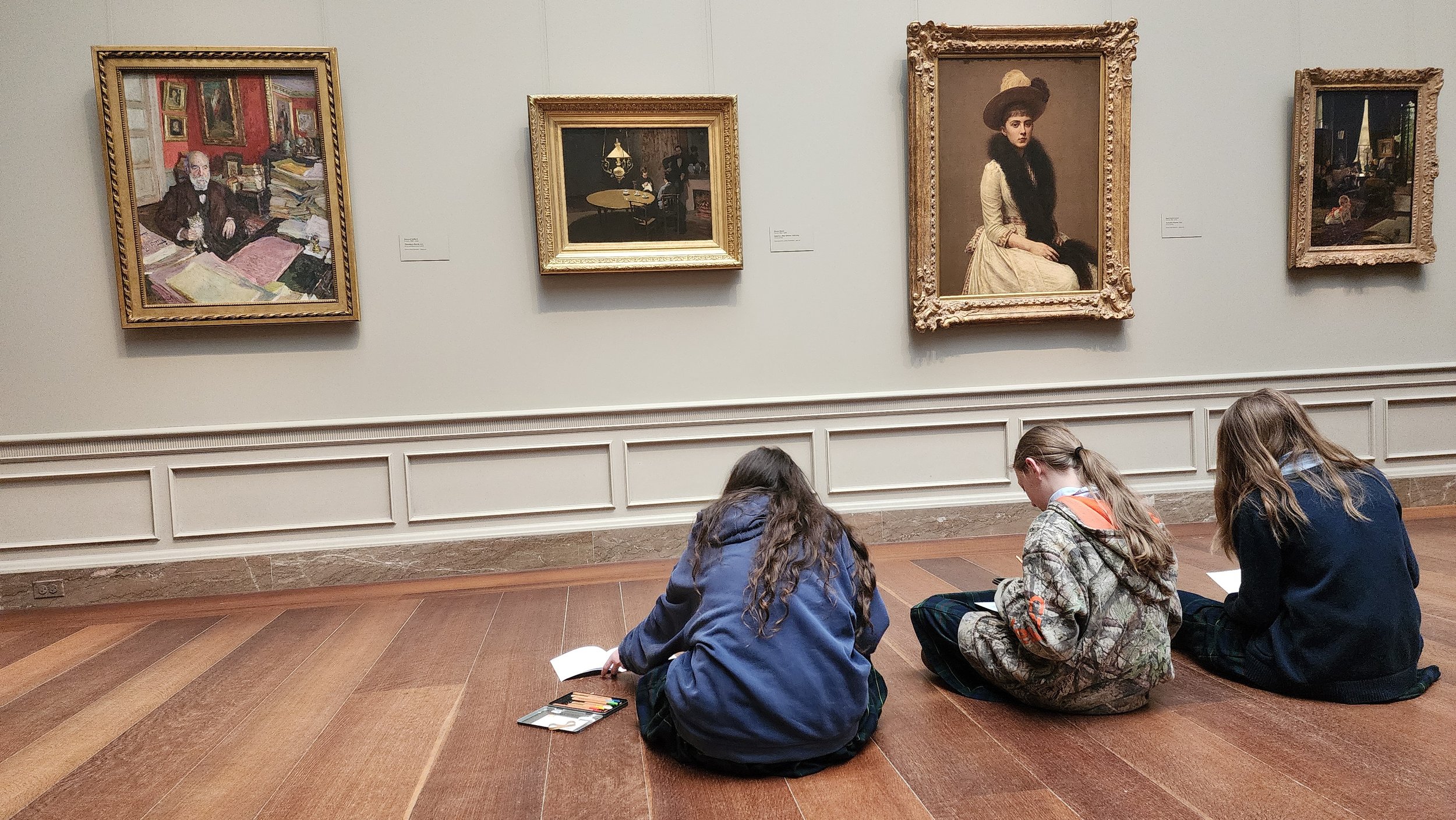ABOUT US
ABOUT Ambleside School
Ambleside School is a Christ-centered school committed to providing a Charlotte Mason “living education.” In partnership with the family, we guide and empower each student to think with the mind of Christ and to author a life rich in relationship to God, self, others, ideas, and all of creation.
We were founded in 1999 by a group of parents desiring authentic and excellent Christian education for their children. Dissatisfied with the curriculum and pedagogy used by other Christian schools, these families came together and built something different. At Ambleside, we hold the foundational conviction that children are born persons, created in the image of God, with vast potential for varied interests and skills, fostered through a broad curriculum, intentional instruction, and an atmosphere conducive to learning and growth.
Hear from our Head of School, Kristin Nowak
“Education is an atmosphere, a discipline, and a life.”
For Charlotte Mason, education has a triune basis that reflects the unity of the Trinity. Her three pillars of education guide everything we do at Ambleside, in the classroom and beyond. Click on each of the sections below to learn why atmosphere, discipline, and life are crucial to a child’s appetite for learning.
-
The teacher’s greatest responsibility is to cultivate, nurture and safeguard the classroom atmosphere. Every detail matters, from furniture and decor, to quality of student work, to the teacher-student relationship. If a child’s environment is visually overstimulating, or if the teacher allows a stressful or sullen attitude, the “thought-environment” is spoiled. A gentle emotional-relational atmosphere must emerge, in which the natural hierarchy of authority is respected. The teacher must have peaceful authority and be relationally-attuned to the students – as opposed to being a controlling autocrat. The ideas a teacher unconsciously conveys are just as important as the factual content she teaches. She must build belonging and joy, nurture healthy relational models, resist activities or techniques that are childish or less than beautiful or inspirational, and ensure all students delight in their studies and produce quality work.
“Teaching may be so watered down and sweetened, teachers may be so suave and condescending, as to bring about a condition of intellectual feebleness and moral softness. The bracing atmosphere of truth and sincerity should be perceived in every school; and here again the common pursuit of knowledge by teacher and class comes to our aid and creates a current of fresh air perceptible even to the chance visitor.
But a school may be working hard, not for love of knowledge, but for love of marks, our old enemy; and then young faces are not serene and joyous but eager, restless, apt to look anxious and worried.”
-
In an age where attention and resiliency are eroding, children must form good moral, intellectual and physical habits if they are to gain a firm foundation for life. Charlotte Mason says that “habit is to life what rails are to transport cars.” Habit directs everything we do in life. If we fail to lay down habits of right thinking and right living, habits of wrong thinking and wrong living will automatically establish themselves. To do what is right is a learned discipline, not a natural instinct. Discipline requires attending to the task at hand, putting forth effort and persevering through struggle, not for a grade or approval, but because it is one’s duty. Good habits, developed early and nurtured continually, will serve children throughout their lives.
“No intellectual habit is so valuable as that of attention; it is a mere habit but it is also the hall-mark of an educated person. The habits of fitting and ready expression, of obedience, of good-will, and of an impersonal outlook are spontaneous bye-products of education in this sort. So, too, are the habits of right thinking and right judging; while physical habits of neatness and order attend upon the self-respect which follows an education which respects the personality of children.
We are empirically certain that a chief function of education is the establishment of such ways of thinking in children as shall issue in good and useful living, clear thinking, aesthetic enjoyment, and, above all, in the religious life.”
-
True education is not mere fact memorization or striving for achievement. Rather, education is the formation of the whole person: mind, heart, body, and soul. Because children are born persons, they require a life of learning that will nourish their hungry souls. To foster this holistic formation, children must feed upon great ideas, conveyed through both “living books” and the beauty of creation. The good, true and beautiful are freely and abundantly available to us, if we only have the eyes to see. Charlotte Mason asserted that the Holy Spirit is the Great Educator, the Teacher who inspires us through the divine outpouring of all knowledge. He breathes into a child’s heart a love of learning for its own sake that will, if properly encouraged, sustain him always. Thus, the role of the educator is to present a “feast” of great ideas before the child, in a variety of forms. The child then assimilates those ideas as naturally and joyfully as eating a delicious, wholesome meal - for ideas are to the soul as food is to the body.
“For the mind is capable of dealing with only one kind of food; it lives, grows, and is nourished upon ideas only; mere information is to it as a meal of sawdust to the body; there are no organs for the assimilation of the one more than of the other. The mind feeds on ideas and therefore children should have a generous curriculum.”





